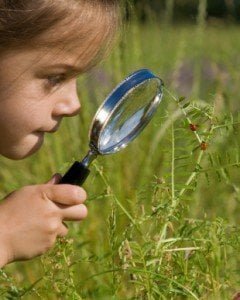You’re fat, unhappy and stressed.
Your computer stalls in the middle of an important project and you want to throw it out the window. The printer gets a paper jam and it feels like the world is closing in. Finally, you leave work, get in your car in the parking garage and drive to your apartment, where you eat a microwavable dinner, watch Netflix and wonder while you feel so miserable.
Then, it hits you like a ton of bricks: you haven’t felt the breeze of natural air in weeks. You’re living in a climate-controlled prison.
Unfortunately, for many Americans, this scenario is only slightly hyperbolic. While modernity has brought us a bounty of benefits, it has also cut us off from the natural world and made us much more sedentary people.
My profile last week on Kenton Whitman, a wilderness enthusiast and life coach, made me think more in-depth about the long-term effects of the absence nature on our psyche. In our interview, Whitman talked about the idea that we all have an ingrained desire to interact with nature, like our forebears have been doing for millions of years before. He suggested that by not doing so and suppressing that desire, we could be causing unhappiness and frustration in our life.
This idea–that there is an instinctive bond between man and living systems–is often referred to as the biophilia hypothesis and was popularized by the famous naturalist E.O Wilson in his 1984 book, Biophilia.
In addition to other evidence, the theory cites the fact that people care for animals and keep plants and flowers in their homes as the result of thousands of years of conditioning, during which human beings were reliant upon their interactions with the natural world for survival.
I n his 2005 book Lost Child in the Woods, author Richard Louv expanded upon this idea, positing that overzealous parenting, a fear of the outdoors and the increase in electronic gadgetry all have contributed to children developing what he coined as “nature deficit disorder.” from their lack of experiences in the outdoors.
n his 2005 book Lost Child in the Woods, author Richard Louv expanded upon this idea, positing that overzealous parenting, a fear of the outdoors and the increase in electronic gadgetry all have contributed to children developing what he coined as “nature deficit disorder.” from their lack of experiences in the outdoors.
The book struck a nerve, spurring a national movement among educators, health professionals and parents to expose children more frequently to nature. In fact, the movement even formed a loose coalition called “No Child Left Inside,” which rallied for more public funding for nature-based activities in the form of a federal bill, which is currently pending in Congress.
All of this leaves me wondering what the future for Americans and the outdoors entails. Could we be on the eve of a naturalistic renaissance, where research showing a positive correlation between outdoor activity and mental health motivates more Americans to venture away from the couch and out onto the trails?
Or will we continue to move away from the natural world and become further imbued in electronics and digital technology that may be doing irreparable damage to our brains.
What are your thoughts? Weigh in on the comment section below and let your opinion be heard.




1 Comment
It’s shocking to realize that a lot of people will live their whole lives without a true wilderness experience. We have disconnected (at least in our minds) from the very nature that we are a part of. It’s no wonder we continue to trash the planet, we believe we are somehow separate from it. If everyone went out into the woods and understood how it is all connected I believe we could live symbiotically with it, but the outlook is terribly dim right now.